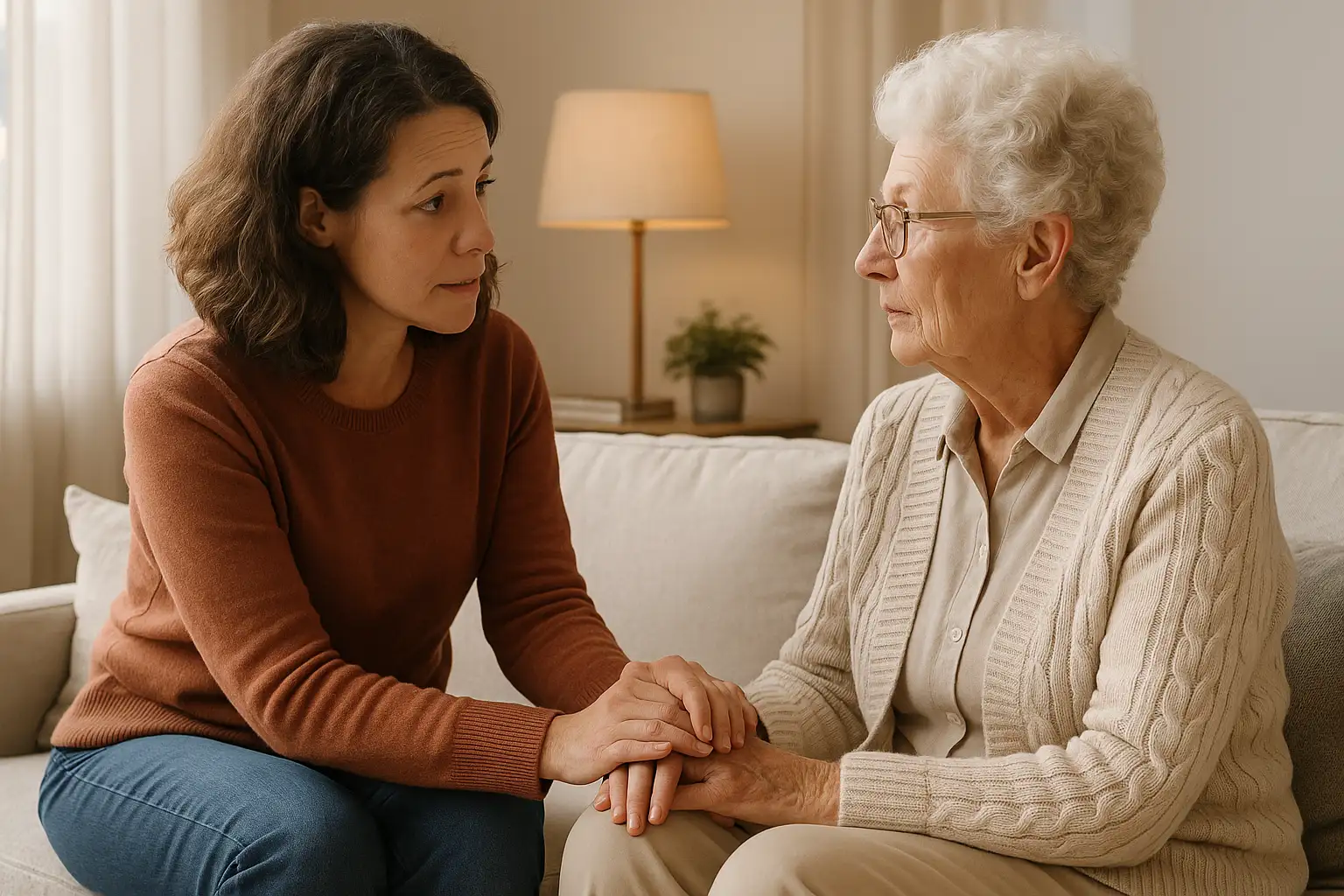 No one looks forward to talking about hospice. It’s one of the hardest conversations a person can have. But when a loved one is facing a serious illness, discussing end-of-life care isn’t giving up — it’s showing up, with love, honesty, and respect.
No one looks forward to talking about hospice. It’s one of the hardest conversations a person can have. But when a loved one is facing a serious illness, discussing end-of-life care isn’t giving up — it’s showing up, with love, honesty, and respect.
If you’re not sure where to begin, you’re not alone. Here are some gentle ways to approach it.
Pick the Right Moment
This isn’t a conversation for the car ride home from chemo. Choose a quiet, unrushed moment when you’re both calm and able to talk without interruptions.
Ideally, find a setting that feels familiar — the kitchen table, a favorite chair, a backyard walk. Your tone matters as much as your words.
Lead with Care, Not Fear
You might begin with something like:
“I’ve noticed things have been harder lately, and I want to make sure we’re doing everything we can to keep you comfortable.”
Or:
“I’ve been reading about hospice — it’s not about giving up. It’s about getting more help, so you don’t have to go through this alone.”
Let your loved one know this isn’t about control. It’s about support.
Be Ready for Emotions
These conversations bring up a lot: fear, sadness, anger, denial. That’s normal.
Your job isn’t to fix it in one talk. Just being present — and staying calm if the reaction is strong — makes a difference. Hospice teams in Los Angeles are used to helping families process these emotions and can even join the conversation if needed.
Use Questions, Not Ultimatums
Try asking:
- “What matters most to you right now?”
- “Have you thought about what kind of care you’d want if things got worse?”
- “Would you be open to meeting someone from hospice just to learn more?”
These open-ended questions create space for dialogue — not defensiveness.
Clarify What Hospice Actually Is
Many people still think hospice means “giving up.” It doesn’t.
It means choosing comfort care, a team of professionals who come to your home, and 24/7 support — physically, emotionally, and spiritually. It means fewer trips to the ER and more time together, on your terms.
You Don’t Have to Do This Alone
If the idea of discussing end-of-life care feels overwhelming, hospice providers can help. In Los Angeles, many hospices offer family guidance, counseling, and informational visits — no pressure, no commitment.
Reach out to our team to learn how to begin the conversation — and where to go next.
